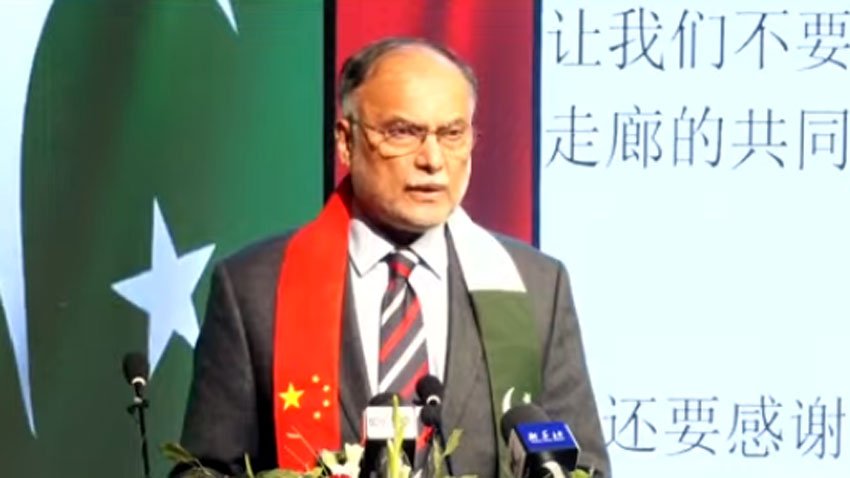Islamabad (TDI): Minister for Planning and Development Ahsan Iqbal on Wednesday expressed gratitude to the Chinese leadership for its unwavering support to China-Pakistan Economic Corridor.
He was speaking at an event in connection with the Chinese Spring Festival in Islamabad.
“Pakistan and China are writing a new chapter of collaboration that will benefit the generations to come,” the minister said.
Work on CPEC remained sluggish over the last several years while the previous PDM government, particularly Pakistan Muslim League-Nawaz had alleged that the previous government had stopped implementation of the project due to Western pressure.
Read More:Pakistan, China Commit to High-Quality CPEC Phase II
However, reports suggest that work on the Chinese project has never remained suspended, though the CPEC development faced procedural issues on several occasions.
After much delay, work on the second phase of the project is being expedited by the present government.
Minister on Second Phase
“The second phase of CPEC will open up immense opportunities in sectors such as manufacturing, agriculture, Information Technology and tourism,” Ahsan Iqbal asserted.
He noted that development of Special Economic Zones and modernization of agriculture would drive economic diversification, create millions of jobs and enhance Pakistan’s global competitiveness.
He asserted that the second phase of CPEC is focused on business to business cooperation aimed at unlocking even greater economic potential.
Also Read:CPEC Phase II to Boost Tech Innovation, Agri Growth: Ahsan Iqbal
Ahsan Iqbal said the CPEC is a symbol of unshakeable friendship and presents a roadmap to sustainable development and mutual growth and prosperity not only for our two nations but the broader region as well.
The minister said work on two mega projects Karakoram highway phase two and ML-1 will commence this year.
He expressed gratitude to the Chinese leadership for their unwavering support to the vision of CPEC.
Ahsan Iqbal said all possible steps are being taken for the security of Chinese nationals in Pakistan, describing it as a national duty.















